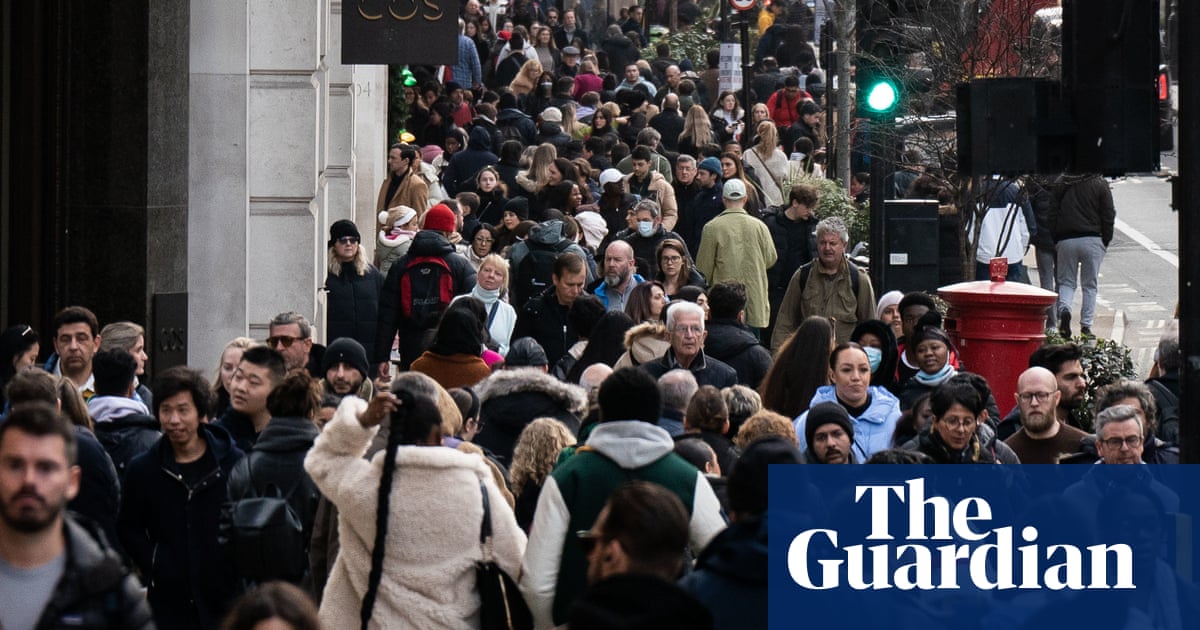
Tesco said customers are putting fewer items in their baskets and are switching to cheaper own-brand alternatives as they face “unprecedented increases in the cost of living”.
The UK’s largest supermarket said it had gained market share from the other “big four” chains – Asda, Morrisons and Sainsbury’s – but sales in the three months to 28 May fell 1.5% on the same period last year when the UK was in lockdown.
Ken Murphy, the chief executive of Tesco, said: “The market environment remains incredibly challenging.”
He said it was difficult to separate the significant impact of last year’s coronavirus lockdowns from other influences on shoppers but Tesco was seeing “some early indications of changing customer behaviour as a result of the inflationary environment”.
Shoppers spent 14.5% less online and 0.7% less in Tesco’s big supermarkets but 6.2% more in its convenience stores, indicating that families are trying to buy little and often to keep a lid on their grocery bills.
Tesco said the biggest fall in sales was in clothing and general merchandise, such as homewares and toys, while the decline in the volume of goods sold was partly offset by inflation. Amid soaring petrol prices, fuel sales remain down on pre-pandemic levels. Murphy said Tesco “continues to price fuel very competitively in the middle of the market”.
He said there were signs that shoppers were starting to shift their spend towards its cut-price ranges, particularly on basics such as bread, beans and pasta, where inflation has been high, in order to save money.
“We are seeing early signs of customers trading down in areas where there has been significant cost price pressure,” he said.
Murphy said it was “early days” and difficult to interpret customer behaviour, given other influences including behaviour “normalising” after last year’s restrictions on shopping, office working and dining out and this year’s platinum jubilee and poor weather.
He said it was “hard to judge” how long food inflation would continue because of the multiple influences on prices, including energy costs, the war in Ukraine and the weather’s effect on crops.
However, he added: “Customers are facing unprecedented increases in the cost of living and it is therefore even more important that we work with our supplier partners to mitigate as much inflation as possible.”
Murphy defended his £4.75m pay package, saying: “The majority of that is variable and based on performance” and that Tesco had almost made an “enormous investment” in a pay rise of almost 6% for shop floor staff in the past year.
Sales in the Republic of Ireland were down 2.4% but overall group sales were up 2% because of strong growth in central Europe and at its Booker wholesale chain.
The retailer’s comments come after more than one in five (22%) of those who took part in a recent survey said they skipped a meal or reduced the size of meals because they could not afford to buy food.
Shop prices rose in May to the fastest rate in more than a decade, according to figures from the British Retail Consortium and NielsenIQ. Food inflation leapt to 4.3% in May from 3.5% in April, the highest since April 2012.
On Thursday the Bank of England warned the headline rate of annual consumer inflation was likely to rise above 11% in October. Inflation is already running at a 40-year high of 9%.












